Top 5 Construction Projects Perfect for #57 Crushed Concrete Crushed concrete, particularly #57 grade, is a versatile and sustainable construction material that’s gaining popularity in various projects. This recycled aggregate offers numerous benefits, including cost-effectiveness, environmental friendliness, and excellent performance in specific applications. Let’s explore the top five construction projects where #57 crushed concrete truly shines.
Driveway Construction and Renovation
Driveways are an ideal application for #57 crushed concrete. This grade provides:
- Excellent drainage capabilities
- Superior load-bearing capacity
- Enhanced durability compared to traditional gravel
Homeowners and contractors alike appreciate the cost-effective nature of using recycled concrete for driveways. It’s an environmentally responsible choice that doesn’t compromise on quality or aesthetics.
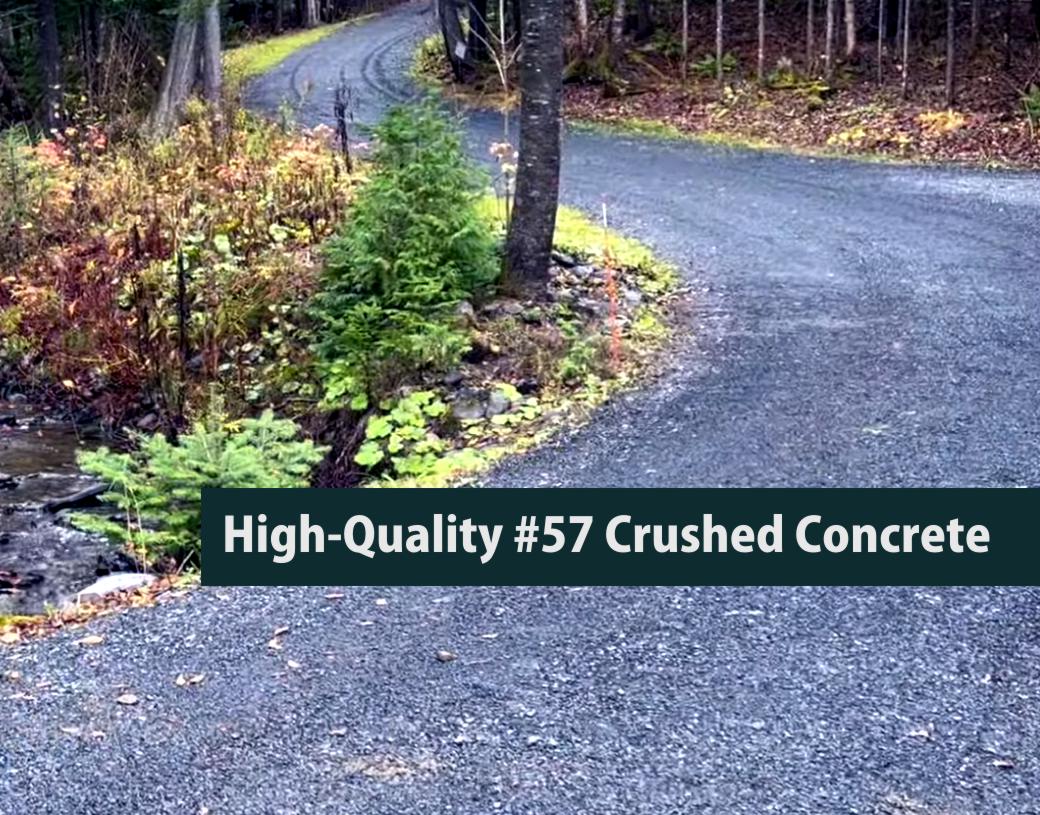
Residential and Commercial Parking Lots
Parking lots require materials that can withstand heavy traffic and varying weather conditions. #57 crushed concrete is perfect for this application because:
It compacts well, creating a stable base The material allows for proper water drainage, reducing puddles and ice formation Long-lasting performance translates to lower maintenance costs
By choosing crushed concrete for parking lots, project managers demonstrate a commitment to sustainability while ensuring a durable and functional surface.
Road Base and Sub-base Construction
In road construction, a strong foundation is crucial. #57 Crushed concrete serves as an excellent:
- Base layer for asphalt or concrete roads
- Sub-base material for various pavement types
- Stabilizing agent for soft soils
The angular shape of crushed concrete particles promotes superior interlocking, resulting in a stable and robust road structure. This application highlights the material’s ability to withstand heavy loads and frequent use.
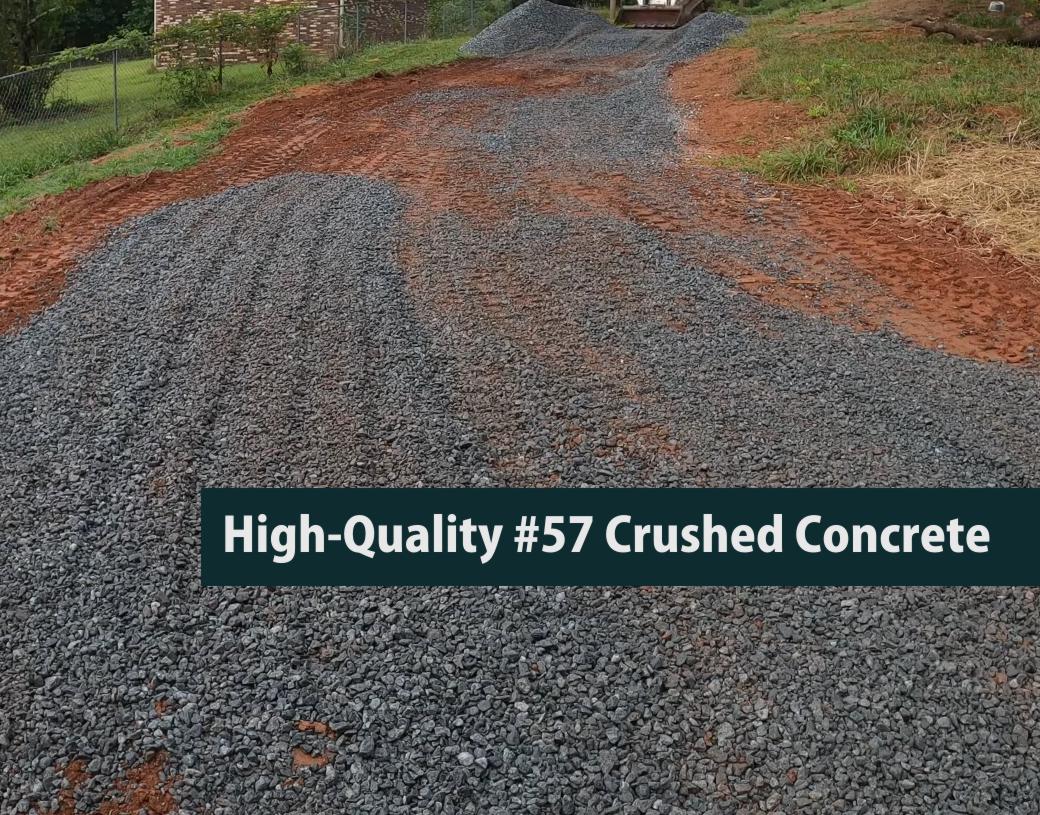
Landscape and Hardscape Projects
Landscapers and hardscape designers are increasingly turning to #57 crushed concrete for:
- Garden pathways and walkways
- Retaining wall backfill
- Decorative ground cover
The material’s natural, earthy appearance blends well with various landscape designs. Its permeability makes it an excellent choice for areas requiring good drainage, while its durability ensures long-lasting results in outdoor environments.
High-Quality 57 Crushed Concrete
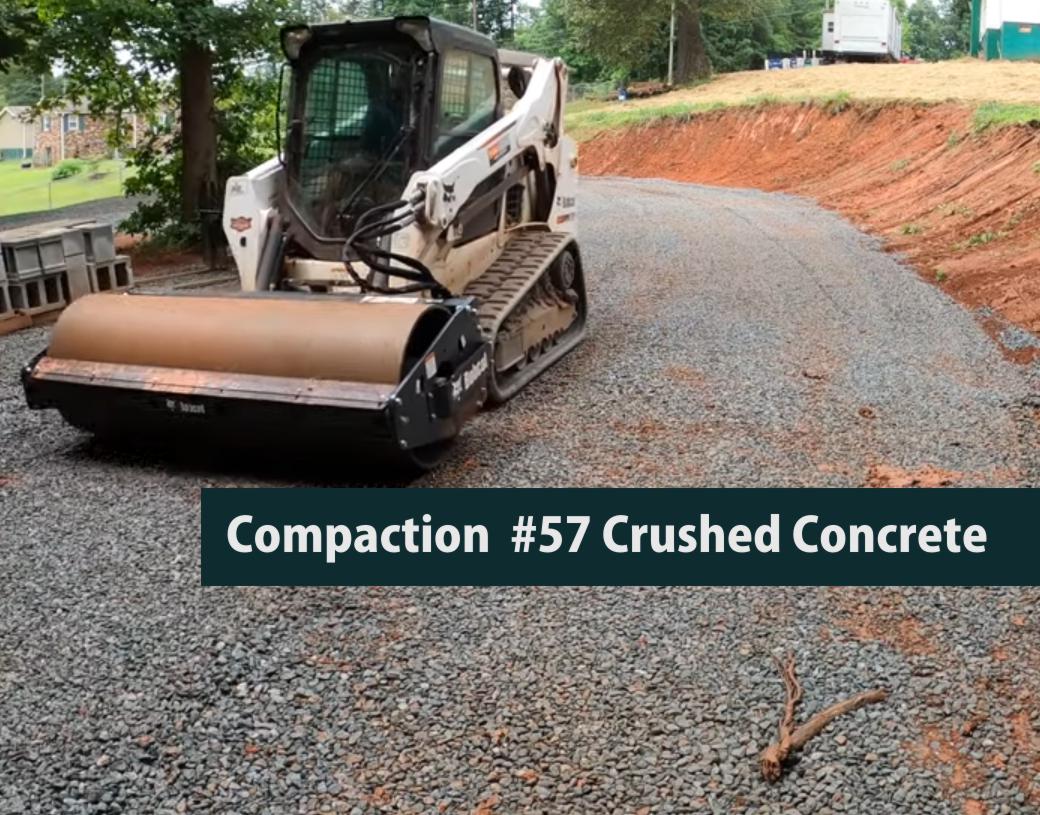
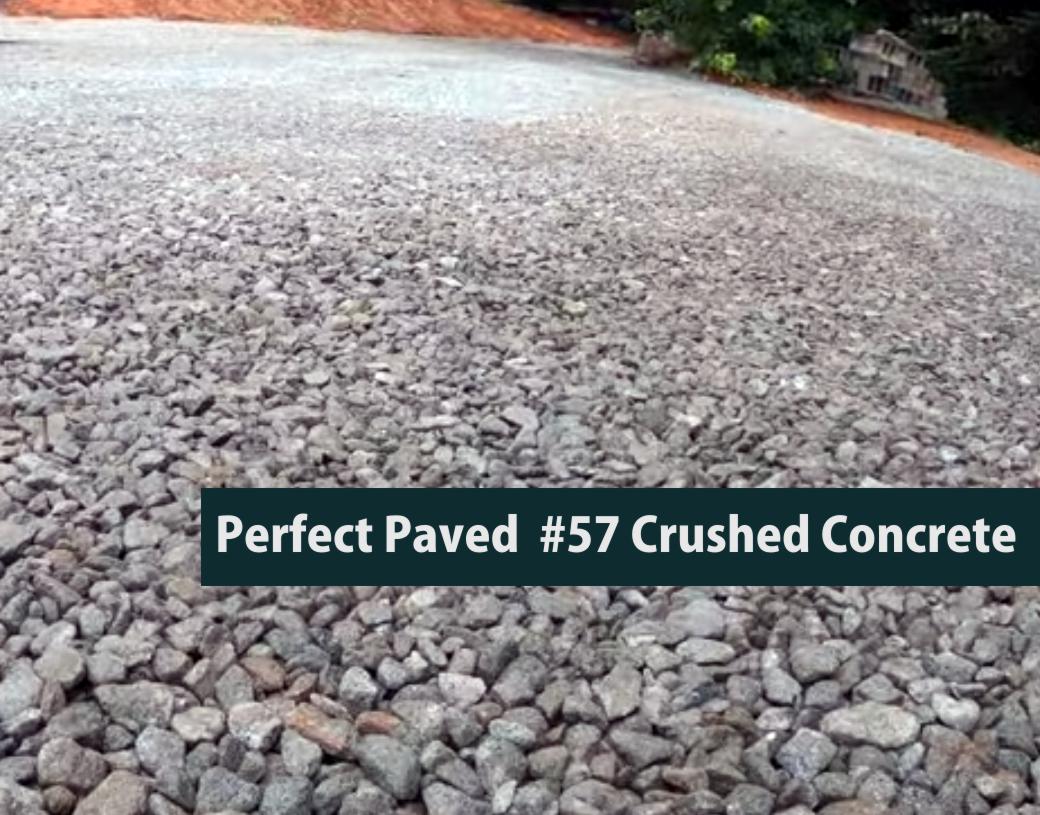
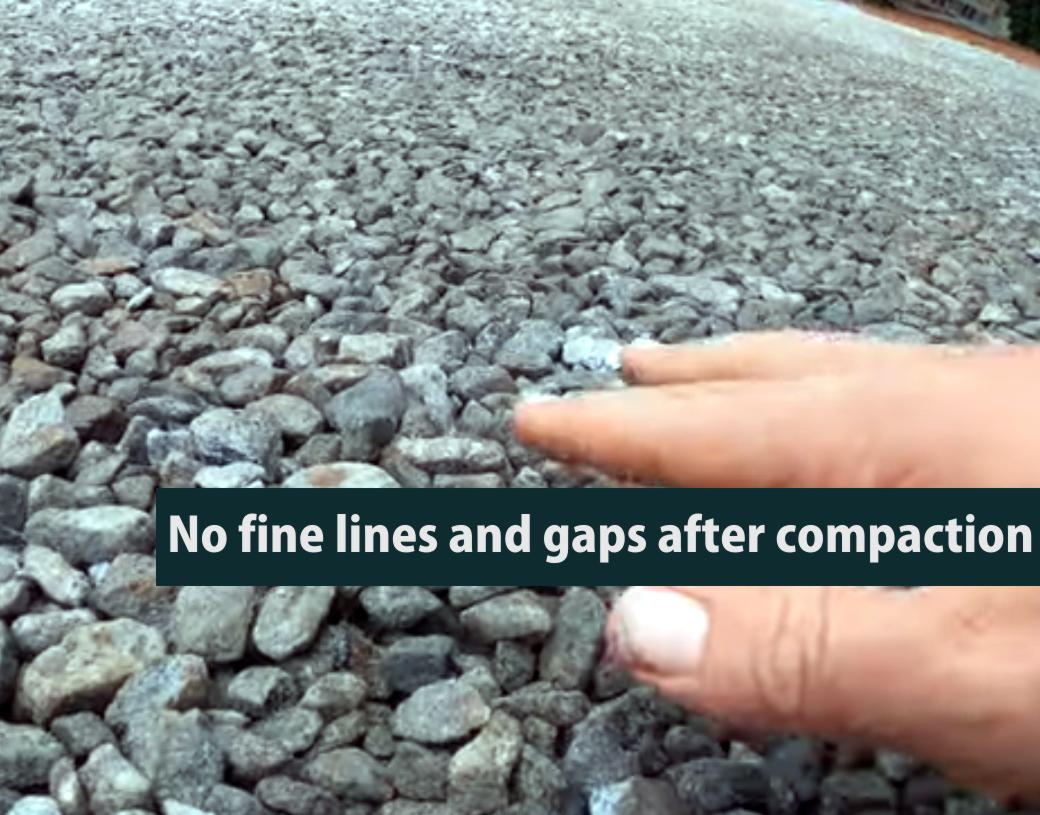
Erosion Control and Stormwater Management
#57 crushed concrete plays a vital role in:
Shoreline protection and stabilization Gabion basket fill for retaining walls and barriers French drain systems for improved water management
The material’s ability to filter water and its resistance to erosion make it an ideal choice for these applications. By using crushed concrete in erosion control projects, engineers can address environmental concerns while providing effective solutions. Conclusion: Embracing Sustainability and Performance Incorporating #57 crushed concrete into construction projects offers numerous advantages:
Environmental benefits: Reduces landfill waste and conserves natural resources Cost-effectiveness: Often more affordable than virgin aggregates Excellent performance: Matches or exceeds traditional materials in many applications Versatility: Suitable for a wide range of construction projects Durability: Provides long-lasting results, reducing maintenance needs
By choosing #57 crushed concrete, construction professionals demonstrate a commitment to sustainable practices without compromising on quality or performance. This recycled material continues to gain recognition for its ability to meet diverse project requirements while contributing to a more environmentally responsible construction industry. As the construction sector evolves, materials like #57 crushed concrete will play an increasingly important role in creating resilient, eco-friendly infrastructure. Embracing these innovative solutions not only benefits individual projects but also contributes to a more sustainable future for the entire industry.
Most Asked Questions
What is the typical price range for #57 crushed concrete?
The price of #57 crushed concrete can vary depending on your location, the supplier, and the quantity you purchase. On average, the price range is typically between $20 to $40 per ton.
Can #57 crushed concrete be used for all types of construction projects?
While #57 crushed concrete is highly versatile, it may not be the optimal choice for all construction projects. It is best suited for applications such as roadways, pavement, foundations, and landscaping, where its specific properties and performance characteristics make it a valuable material.
How does the use of #57 crushed concrete compare to traditional aggregate materials in terms of cost savings?
Compared to traditional aggregate materials like gravel or crushed stone, #57 crushed concrete can provide significant cost savings, often ranging from 20% to 50% or more, depending on the specific project and location.
What are the environmental benefits of using #57 crushed concrete?
The use of #57 crushed concrete helps to divert concrete waste from landfills, reducing the environmental impact of construction activities. Additionally, the material’s recycled nature and reduced transportation requirements contribute to its overall sustainability.
How can I ensure the proper placement and compaction of #57 crushed concrete?
Proper placement and compaction of #57 crushed concrete are essential to achieving the desired performance and longevity. It’s recommended to follow the manufacturer’s or industry guidelines, which may include the use of specialized equipment, such as plate compactors or vibratory rollers.
Are there any special considerations for using #57 crushed concrete in cold climates?
Yes, in cold climates, it’s essential to take measures to prevent the #57 crushed concrete from freezing during the installation process. This may involve using heated equipment, insulating the material, or scheduling the work during warmer periods.
Can #57 crushed concrete be used in residential projects, such as driveways and pathways?
Absolutely! #57 crushed concrete is an excellent choice for residential construction and landscaping projects, providing a durable, cost-effective, and aesthetically pleasing solution for driveways, pathways, and other outdoor hardscaping elements.
How does the permeability of #57 crushed concrete compare to traditional aggregate materials?
#57 Crushed concrete is generally more permeable than traditional aggregate materials, thanks to its angular and porous nature. This enhanced permeability makes it a suitable choice for applications where effective drainage is a priority, such as in stormwater management or French drain systems.
What are the best practices for handling and storing #57 crushed concrete on-site?
Proper handling and storage of #57 crushed concrete are essential to maintain its quality and prevent contamination. This may include covering the material to protect it from the elements, segregating it from other waste or hazardous materials, and ensuring it is placed on a stable, well-drained surface.
Can #57 crushed concrete be used in structural concrete mixes?
Yes, #57 crushed concrete can be incorporated into structural concrete mixes as a partial or full replacement for traditional coarse aggregates. However, it’s important to consult with a structural engineer or concrete specialist to ensure the appropriate mix design and performance requirements are met.
What is the typical compressive strength of #57 crushed concrete?
The compressive strength of #57 crushed concrete can vary depending on the source and quality of the recycled concrete, but it generally ranges from 2,000 to 4,000 psi, making it a suitable choice for a wide range of construction applications.
How does the lifespan of #57 crushed concrete compare to traditional aggregate materials?
When properly installed and maintained, #57 crushed concrete can provide a long-lasting performance that is comparable, if not superior, to traditional aggregate materials. With its high durability and resistance to weathering, #57 crushed concrete can often deliver a service life of 10 to 20 years or more.
Can #57 crushed concrete be used in applications that require high-load-bearing capacity?
Yes, the compressive strength and load-bearing capacity of #57 crushed concrete make it a suitable choice for applications that require heavy-duty support, such as in foundation systems or heavily trafficked areas like industrial warehouses or commercial parking lots.
How can I ensure the quality and consistency of the #57 crushed concrete I purchase?
To ensure the quality and consistency of the #57 crushed concrete, it’s recommended to work with reputable suppliers who can provide third-party testing data and certifications. Additionally, you may want to conduct your own field tests or sample inspections to verify the material’s compliance with the project specifications.
